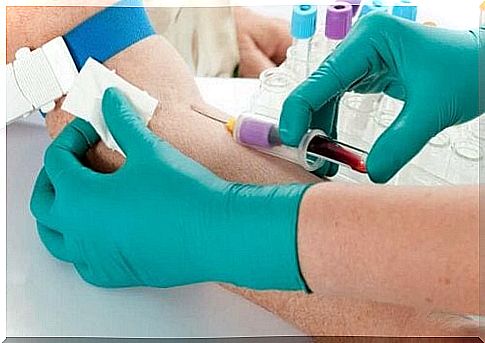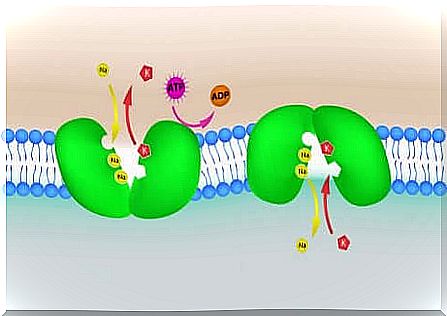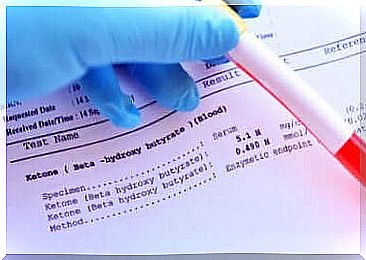Symptoms And Causes Of Hyperkalaemia
Hyperkalaemia is a condition characterized by high potassium levels. It is often caused by kidney failure; however, other factors may come into play. Find out more about this.

Hyperkalaemia is a condition characterized by potassium levels that are above normal values. If they were below, we would speak of hypokalemia.
The ranks of the analyzes generally indicate that the normal level of this electrolyte should be 5.5 mmol / L. Patients with levels higher than that mentioned will therefore have hypokalaemia.
To better know and understand this pathology, it is important to know more about the electrolyte concerned, potassium.
Potassium and its functions in the body

Potassium is a chemical element that takes part in many reactions in the body, from the muscles to the brain.
It is both a macro-mineral and an electrolyte. Electrolytes, such as chlorine or sodium, play an important role in the body: they help balance the pressure and concentration of substances inside and outside cells.
In addition to these roles, they have other functions:
- Growth and bone structure.
- Contraction and protein synthesis.
- Nerve transmission.
- Osmotic balance.
Symptoms derived from hyperkalaemia
Normally, when a person has high potassium levels, they usually don’t experience any symptoms. This is why the majority of cases of hyperkalaemia go unnoticed.
However, sometimes different signs appear. This will depend on the severity of the hyperkalemia and how quickly it occurs. The first symptoms that appear are often related to muscle activity.
Thus, a patient may experience tingling, muscle weakness, or tremors in the extremities. It is also common to see paresthesia developing in the fingers of the hands and feet. Paresthesia is an abnormal tingling sensation and warmth or cold on the skin.
In more severe cases, the patient may have other symptoms that affect the activity of the heart, such as cardiac arrhythmias. Why ? Because potassium is necessary for the proper functioning of the heart. To summarize, hyperkalemia will therefore affect many systems of the body and constitute a danger.
Causes of hyperkalemia

The most common cause of hyperkalaemia is kidney failure. In this situation, the kidneys do not excrete potassium properly, which causes this electrolyte to increase in the blood.
However, other factors contribute to the development of this pathology, such as:
- Increase the consumption of foods rich in potassium: this tends to help but it is very rare that an excess of these foods causes a frame of hyperkalemia.
- Adverse Drug Effects: Some drugs affect kidney function.
- Metabolic acidosis.
Treatment

The doctor will indicate a treatment in order to decrease the levels of this mineral. For this, he will focus on the cause that triggered hyperkalemia.
Different treatments will be prescribed depending on the severity of the hyperkalemia. Thus, a patient with a moderate increase in potassium levels will be recommended to take potassium exchange drugs or diuretics. Sometimes dialysis may be necessary.
When it comes to hyperkalemia with a value greater than 6.5 mmol / L without alterations in the electrocardiogram, salbutamol or sodium bicarbonate are two drugs that clearly improve the situation.
Finally, when the previous situation occurs and the EKG is altered, drugs that protect the heart, such as calcium chloride, should be administered.
Other data on hyperkalaemia
Hyperkalemia is an increase in potassium levels in the blood, above normal values of 5.5 mmol / L. Normally, its main cause is poor functioning of the kidneys.
Thus, when indicating a treatment, diuretics are usually administered to strengthen the function of these organs. In the most severe cases, where the heart is affected, it is recommended to take myocardial protective drugs such as calcium chloride.
Despite all the information we have just mentioned, do not hesitate to consult a doctor if you think you have this disease so that the specialist can recommend the appropriate treatment according to your case.









